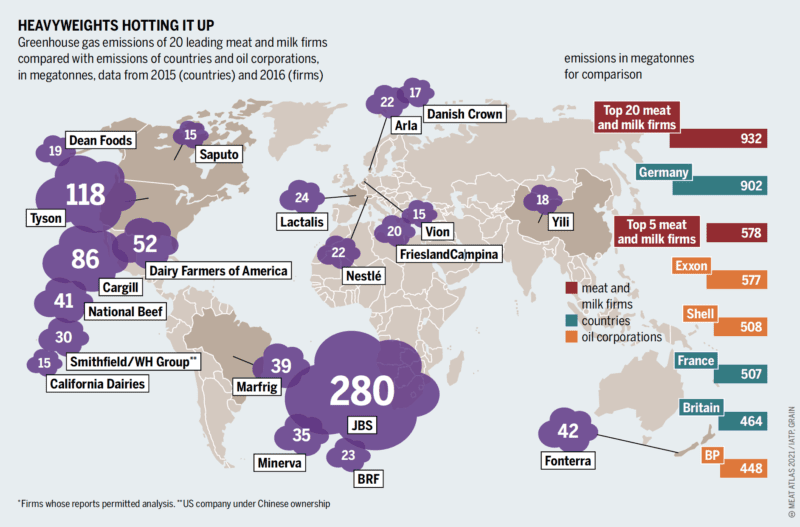But then, as the Meat Atlas points out: “Globally, not a single government requires meat producers to document their emissions or standardise their emission-reduction targets so as to enable comparisons within the sector. Instead, the sector relies on self-reporting.” The problem is that few companies report their emissions and even fewer have targets to reduce them. Not one of the six producers based in the EU is willing to reveal its total emissions.
The report lays bare the complicity of the global financial system in propping up and promoting the industry, with 2,500 banks, pension funds and investment firms – most of them American or European – ploughing $478 billion into meat and dairy firms around the world. That kind of investment could fund an increase in production of 40 million tons a year by 2029, to 366 million tons a year.
It also reveals that while meat-production is growing in the global south, the market will continue to be dominated by China, Brazil, America and EU countries. And for those who don’t realise the damage meat and dairy is doing to the planet – and how simple and effective a solution it can be to eat more plant-based food – the report explains that food production causes 21-37 per cent of global greenhouse gas emissions, of which animal farming is responsible for almost three-fifths (57 per cent).
Barbara Unmüssig,the president of the Heinrich Böll Foundation, said the lack of political action to rein in the billion-dollar meat industry was “keeping us on a tortuous path overstretching the ecological limits of the planet”.
She added that younger generations overwhelmingly wanted governments to step in to regulate the industry, and that meat production would need to be reduced by half in order to meet vital climate goals. “A huge majority [of young people] see politics [has a] duty to finally set binding conditions for a climate- friendly agriculture, better animal husbandry and a climate-friendly diet,” she said.
Last year a report by the US Institute for Agriculture and Trade Policy revealed that the combined greenhouse gas emissions of the world’s 13 biggest dairy companies were equivalent to what is pumped out by the UK, the world’s sixth largest economy.
Explore the Meat Atlas

